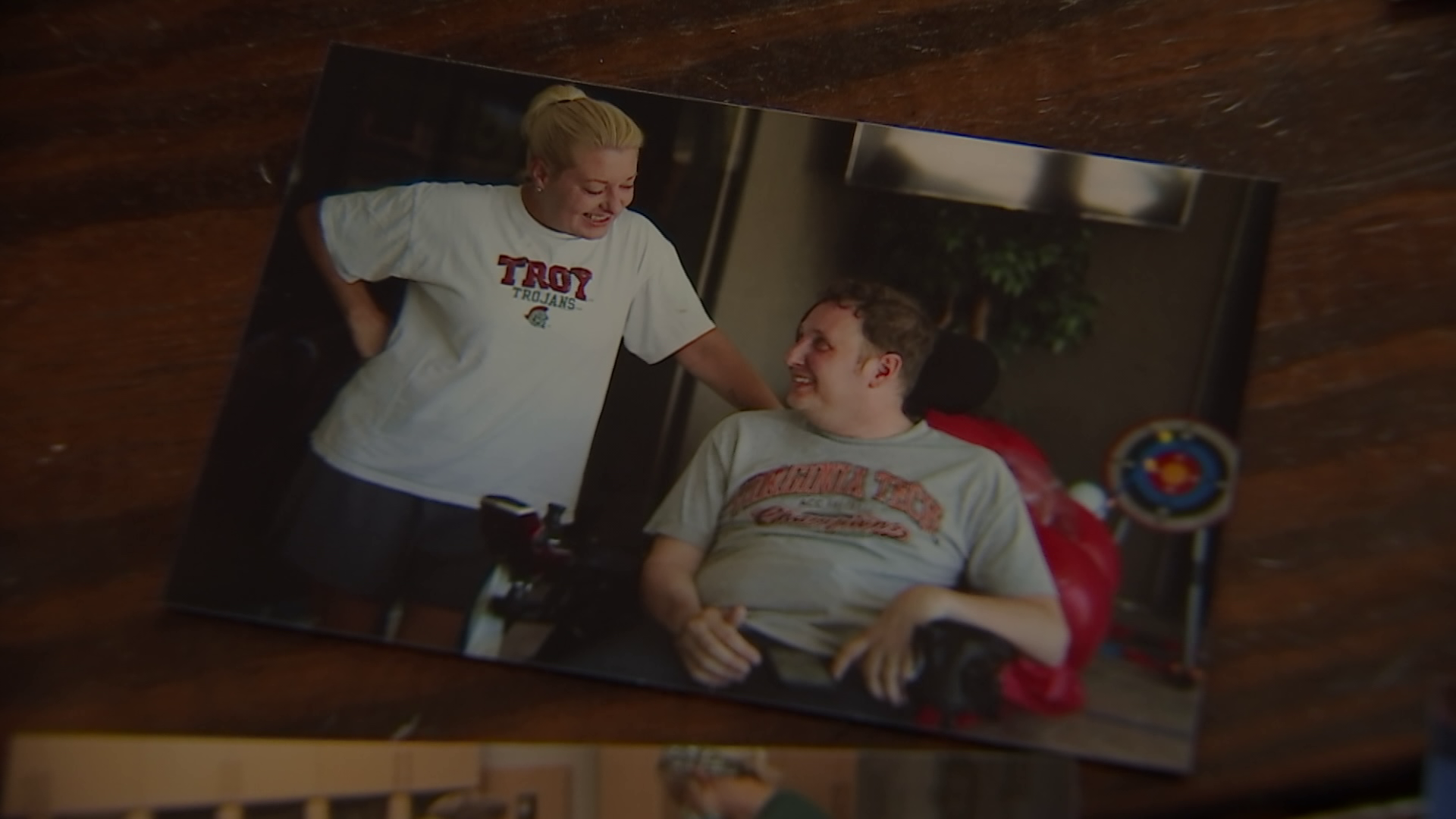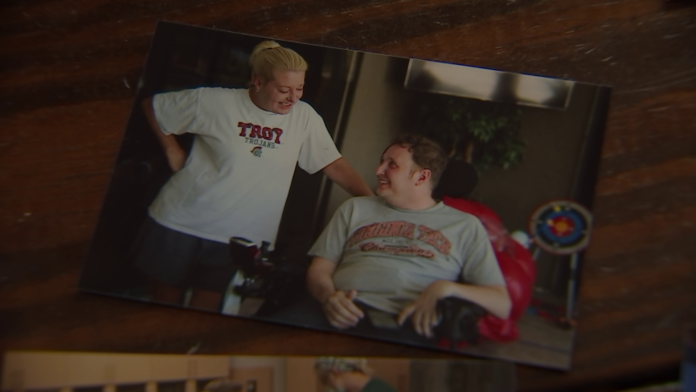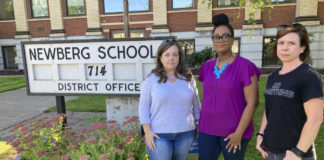
NORTH NAPLES
In a tiny home office in North Naples, Brian Valimont is quietly hard at work.
The 44-year-old is a proud father to his son Eli and Eli is pretty fond of his dad, too .
“Because he’s the best of the best,” Eli said.
But the two are living on borrowed time.
Valimont has ALS, a progressive neurodegenerative disease that affects the cells in the brain and spinal cord.
In the year since Valimont’s diagnosis, a lot has changed. “He’s lost the ability to speak, feed himself and walk.
“He used to be able to stand up and throw me up in the air and catch me and it felt like a roller coaster,” Eli said of his father.
While Valimont’s body is deteriorating, he still works because his mind is still sharp.
“He also has to continue to work to keep our health insurance, to keep life insurance,” said his wife Gay, who is always by his side. “You’re essentially trapped in your body. His mind is perfect. He can do, you know, quantum physics, but he can’t make his body get up and walk.”
A machine attached to Valimont’s wheelchair helps him communicate. He uses his eyes to type letters on a keyboard. It takes him almost five minutes to complete a sentence.
“This is a cruel disease that robs you of everything that outwardly makes you who you are, then it kills you with 100% certainty,” Valimont said.
Gay misses speaking with her husband.
“I miss getting advice, he always made the right decisions,” she said. “And now we can still have conversations, it just takes a little longer.”
Just 25 miles south of the Valimont family is Pat Joyce. She knows what makes Gay emotional.
Joyce’s husband of 46 years, Dan, was diagnosed at the age of 70.
She was with Dan when he learned he had ALS.
“June 6, 2017. I’ll never forget the day,” Joyce said. “He was shocked. I’ve never so rarely seen him cry. And he just had walked out of the office. And we were shocked and fearful tears were like how we could tell our kids?”
ALS worked through Dan’s body fast.
“We get a spelling, you know, kind of Wheel of Fortune thing to spell out words. And…he just…his last word words he spelled out or I’m so sorry. And I love you,” Joyce said. “And he went.”
His death was peaceful and he was surrounded by his family, Joyce said.
“He was free of that monster. Finally,” she said.
ALS is incurable but there are promising drugs in the pipeline that could slow its progression and give families more time together.
Until those drugs complete FDA trials, patients can’t access them.
“That devastation in the depression of living every day, knowing there might be drugs, or treatment out there that you can’t access, it’s indescribable,” Joyce said.
The Valimonts understand how precious that time is because their time is running out.
Eli was diagnosed with a brain tumor early this year.
It’s inoperable, incurable and terminal like his dad’s ALS.
“We break down often and well, I have a disease too. And he does too,” Eli said. “So, it’s hard.”
Gay, Eli’s mother, agrees.
“I just find it hard to believe a righteous God would do this to anybody,” she said. “For someone who loves somebody so much that has ALS, it is, I think cruel and unusual for him not to have everything available for him.”
The Valimonts and Joyce shared their story because they want leaders to pass the “ACT for ALS,” which will give more access to critical treatments which could give families like them just a few months longer.
MORE:
For more information about ACT for ALS, visit the I am ALS website.
To advocate for the passage of ACT for ALS, visit here.








